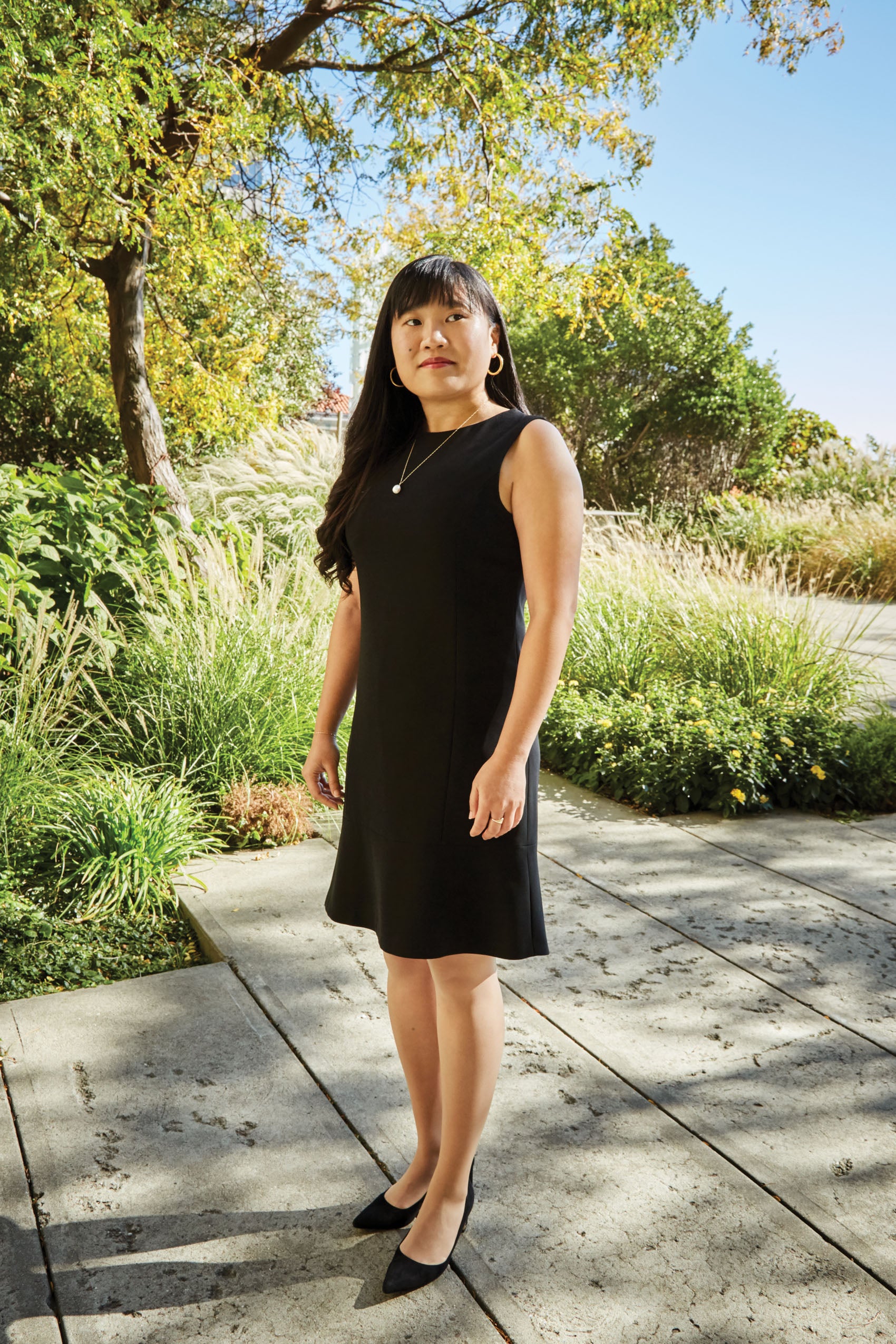It helped that she was a first-generation immigrant herself. Sussan Lee could settle into a conversation with her client, a West African immigrant, about the oddities of everyday American life. They had that kind of newness in common.
But the similarities ended there. Lee had emigrated from Korea easily as a child. Her client was pushing through a years-long process. Strangers were asking him to detail the ways in which he was persecuted for his sexual orientation—first one pair of students, then another, and then finally, at the end of the process, a judge.
“It affected me a lot to see how I had sort of sailed through the immigration process based on my parents’ work, when this person who was right around the same age as me, and really arguably needs to stay in the U.S. a lot more than me, has to jump through a lot more hoops to do so,” Lee said.
After graduation, Lee became a fellow with the Immigrant Justice Corps, the country’s first fellowship program dedicated to meeting the need for quality legal services for immigrants; she worked mostly with Korean and Chinese immigrants at the MinKwon Center for Community Action in Queens. From there, she moved to a public defender office in Queens, where she provided noncitizen defendants with immigration consequences advice.
It was frustrating work. Many of the defendants came in with deportable offenses already on their records—a result of poor legal advice early on. And though the offenses were often minor, and decades old, the only way to help them avoid deportation was to refer them to a public defender at the appellate level, who could then work to vacate their prior convictions.
So when Lee spotted an opening at the appellate level, she jumped at the chance to do the work herself.
She had sailed through the immigration process, and it seemed unfair her client had to jump through so many hoops.
“It really feels like the Hail Mary pass,” said Lee, of vacating prior convictions. “For a lot of our clients, this is the only thing that can potentially give them an avenue for staying with their families.”
It takes time—tracking down the original defense attorney, trying to locate a case file that’s often decades old. And in today’s immigration court, Lee said, there is not much time to go around. Judges are under pressure; cases are moving forward fast. And there are other complications that came with the new administration.
There was a time, not too long ago, when the courthouse was a safe space for Lee’s clients. Of all the obstacles they faced as immigrants charged with a crime, they did not have to worry about the walk to the courtroom. They did not have to worry about getting the opportunity to present their case.
Now plainclothes ICE officers have taken to waiting in courthouses, arresting immigrants charged with deportable offenses as they walk in. Since 2016, New York has seen these arrests increase 1,700 percent.
Given that, Lee said, lawyers are forced to make their clients aware that, if they fight the charges against them, they are putting themselves at risk by having to return to court repeatedly as the case progresses.
“It really puts them between a rock and a hard place,” said Lee, who helped write a New York City Bar Association report on this issue. “Some people are so petrified at the prospect of getting arrested that they’ll say, ‘I just want to be done with this and never come back and not put myself at that risk.’”
The directive has been challenged in a number of jurisdictions, including in New York and Massachusetts, but the practice is ongoing. HIRC filed an amicus brief challenging it, arguing that the chilling effect prevents immigrants from asserting their right to due process.
Despite the obstacles facing her clients, Lee’s office has a high success rate. And when she finds herself in a tough spot, Lee herself has a mentor: Phil Torrey, director of HLS’s Crimmigration Clinic.
“Because I know him to be the subject-area expert, I sometimes reach out to him about cases I have here,” said Lee. “My hope is that if he ever has clients that have New York convictions, I’ll be able to return the favor.”
View additional profiles from our story, Prepared for the Challenge, including:
